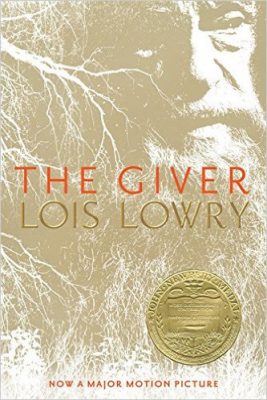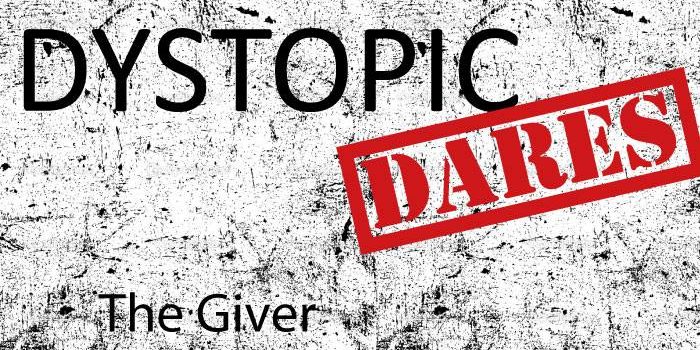
The Giver by Lois Lowry
The second book in the 4 books in 4 weeks challenge is The Giver, the perfect example of how poignant and compelling a YA novel can and should be.
This anti-utopian novel is set in a society in which ‘sameness’ has been instilled in every aspect of the inhabitants’ lives. There has been a suppression of extreme emotions, memory, choice and natural instincts, and even the temperature and surrounding landscape is flat and even. The population size is strictly controlled and everyone is assigned to his or her life-long occupation at the age of twelve. The extreme oppression is hidden under the pretence of welfare and care and as a result there is an air of calm and contentedness despite the obvious lack of freedom.
Jonas is about to turn twelve. He is a sweet natured and intelligent boy who isn’t sure what job he wants to be assigned to but has complete faith that he will be happy in whatever is chosen for him. On the day of the Ceremony of Twelve he gathers with his peers to discover what his future entails, but he isn’t given a job as a carer or a teacher like the others – he is chosen to be the new Giver.
The Giver is separated from the rest of society. He is permitted to have memories, educate himself and fuel himself with as much knowledge as possible so that he can guide the community with his alternative view of the world, but how will Jonas cope with the burden and loneliness that comes with being a Giver? And how will it change the way he views the Elders who control the community, his childhood, his friends and his family?
To me this novel contains everything I adore about the dystopian genre: intrigue, secrecy, oppression, subtlety, heart and complex characterisation. As expected for a YA book The Giver isn’t a difficult read but it is challenging and confrontational in the most intricate and powerful of ways.
In this short novel Lowry perfectly illustrates that pain is an essential element of life, as is love and uncertainty and selflessness, but she does so without the concept becoming corny or cliché. The necessity of experience, change and simply living is depicted beautifully in the novel and she stresses the importance of embracing it to the demographic that needs this message the most: teenagers.
The Giver successfully dabbles with both plausible and implausible concepts, unlike most other examples of dystopian literature. Many elements of the novel are fantastical but the reaction to them is not; when successful long-lasting oppression is achieved (which is almost impossible to organise in reality) the oppressed believe they are happy and looked after and have no cause to revolt. I found the acknowledgement of this refreshing and fascinating to read, so much more so than the scores of actively rebellious teens seen in The Hunger Games. It is far more difficult to rebel against society than is usually depicted in dystopian YA fiction.
This is a disturbing but essential book for teenagers – hell, it’s incredibly important for adults to read too. Somehow Lowry has managed to portray what true oppression looks like while highlighting both the negative and positive aspects of living in a free and democratic society. If you want to feel both devastated and liberated at the same time (and if you’re visiting a blog about dystopian literature you probably do) then The Giver needs to go on your ‘to read’ list.
This review is also part of my 2017 Reading Challenge.




Leave a Reply